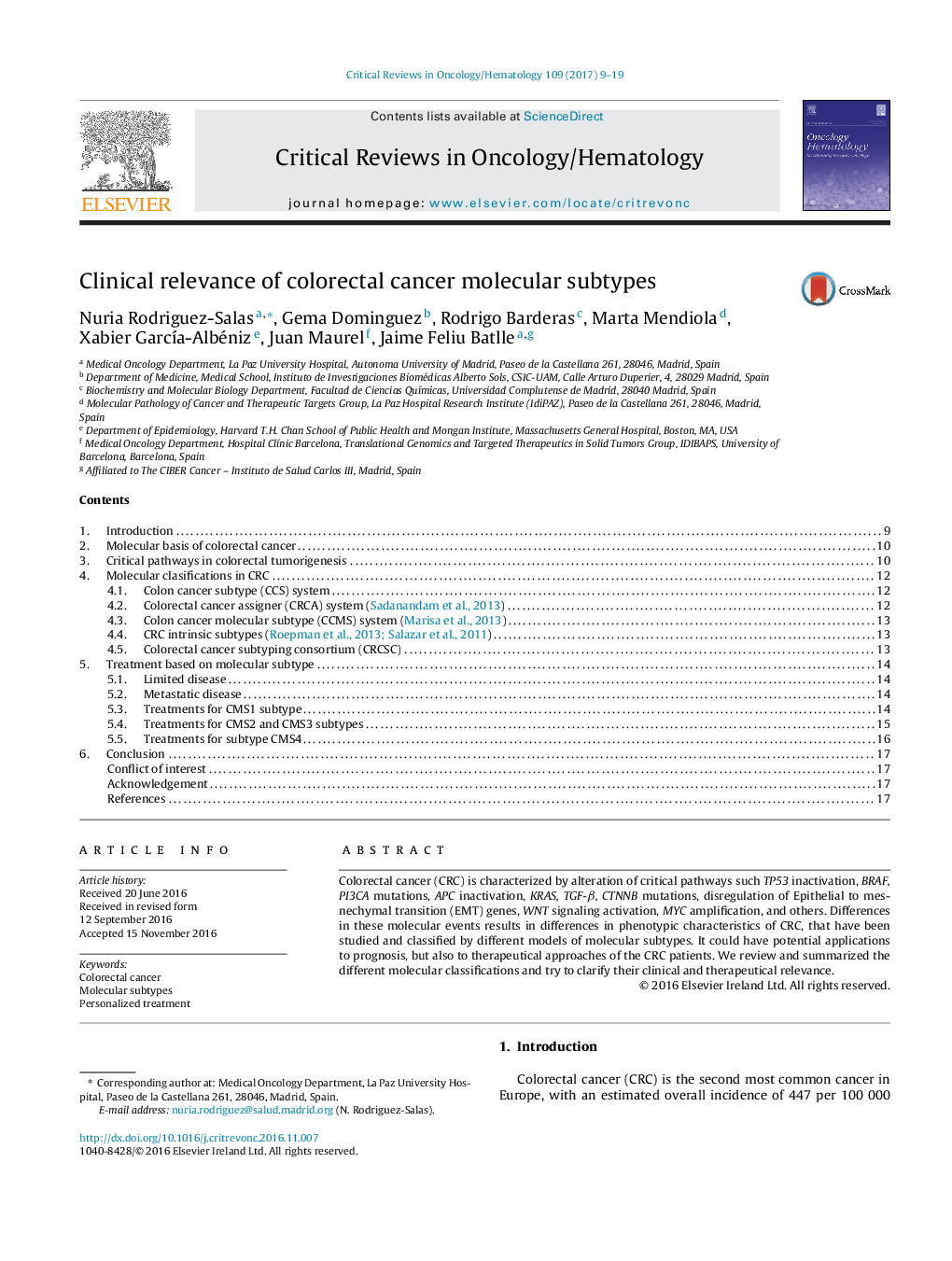| Article ID | Journal | Published Year | Pages | File Type |
|---|---|---|---|---|
| 5664104 | Critical Reviews in Oncology/Hematology | 2017 | 11 Pages |
â¢The comprehensive study of molecular changes in colorectal cancer identifies potential therapeutic targets.â¢The integrative analysis of distinct molecular sybtypes can led to individualized approach to therapeutics.â¢The predictive and prognostic approach is useful in adjuvant setting and also in treatment selection in metastasic disease in CRC patients.
Colorectal cancer (CRC) is characterized by alteration of critical pathways such TP53 inactivation, BRAF, PI3CA mutations, APC inactivation, KRAS, TGF-β, CTNNB mutations, disregulation of Epithelial to mesnechymal transition (EMT) genes, WNT signaling activation, MYC amplification, and others. Differences in these molecular events results in differences in phenotypic characteristics of CRC, that have been studied and classified by different models of molecular subtypes. It could have potential applications to prognosis, but also to therapeutical approaches of the CRC patients. We review and summarized the different molecular classifications and try to clarify their clinical and therapeutical relevance.
